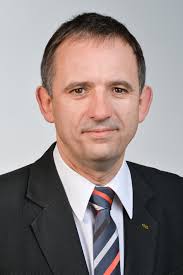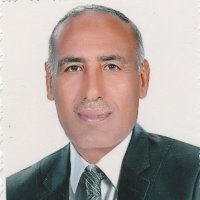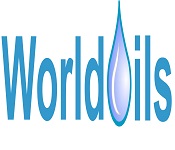Theme: Current Trends & Challenges in Petroleum Exploration & Production
Petroleum Engineering 2017
ConferenceSeries Ltd invites all the participants across the globe to attend the "6th International Conference on Petroleum Engineering” (Petroleum Engineering 2017) scheduled during June 29-30, 2017, 2016 at Madrid, Spain.
Petroleum engineering conference directs towards addressing main issues as well as future strategies of global energy industry. This is going to be the largest and most promising international conference where oil and gas engineering professionals as well as decision makers will come to discuss and debate on various aspects of the challenges, risks and investment opportunities throughout the complete integrated energy and utilities supply chain.
ConferenceSeries Ltd Organises 1000+ Global Events Every Year across USA, Europe & Asia with support from 1000 more scientific societies and Publishes 700+ Open access journals which contains over 100000 eminent personalities, reputed scientists as editorial board and organizing committee members.
Importance & Scope:
Petroleum engineering is a field of engineering concerned with the activities related to the production of hydrocarbons, which can be either crude oil or natural gas. Exploration and Production are deemed to fall within the upstream sector of the oil and gas industry. Exploration, by earth scientists, and petroleum engineering are the oil and gas industry's two main subsurface disciplines, which focus on maximizing economic recovery of hydrocarbons from subsurface reservoirs. Petroleum geology and geophysics focus on provision of a static description of the hydrocarbon reservoir rock, while petroleum engineering focuses on estimation of the recoverable volume of this resource using a detailed understanding of the physical behavior of oil, water and gas within porous rock at very high pressure.
The combined efforts of geologists and petroleum engineers throughout the life of a hydrocarbon accumulation determine the way in which a reservoir is developed and depleted, and usually they have the highest impact on field economics. Petroleum engineering requires a good knowledge of many other related disciplines, such as geophysics, petroleum geology, formation evaluation (well logging), drilling, economics, reservoir simulation, reservoir engineering, well engineering, artificial lift systems, completions and oil and gas facilities engineering.
Recruitment to the industry has historically been from the disciplines of physics, chemical engineering and mining engineering. Subsequent development training has usually been done within oil companies.
Why Spain?
Madrid is the most populous city in the Spain. When organising a conference, there is a choice of large or medium-size cities with a rich historical and cultural heritage. Madrid has considerable experience in business tourism. In fact this city is among the top five on the International Congress and Convention Association (ICCA) world ranking.
There are more than 30 international airports in Spain (which are being extended with new terminals). The capital's airport, Adolfo Suárez Madrid-Barajas, is a great connection between Europe and Latin America, and is the fourth European airport in terms of number of operations and passengers. Spain also has a modern road network to travel across the country, and the largest high-speed rail network in Europe, to get to important destinations in no time.
Spain is also a country with integrated corporate social responsibility strategies, committed to sustainable and eco-friendly tourism. As well as usual venues, in Spain we'll be able to organise our events in cellars (perfect for private meetings in an exclusive environment), historical caves, vineyards, historical buildings, museums (such as Thyssen-Bornemisza in Madrid, Picasso Museum in Malaga, Valencia Institute of Modern Art-IVAM in Valencia and Guggenheim Bilbao), theatres, flamenco clubs, football stadiums... You'll also find auditoriums, multipurpose complexes, exhibition centres... and all kinds of versatile facilities with cutting-edge technology and communications.
Why to attend?
Petroleum Engineering conference aims at multi-disciplined audience with diverse commercial, technical, corporate, operations, planning sectors of the upstream oil and gas engineering services. Meet Your Target Market with members from around the world focused on learning and sharing about Upstream Scientists/Engineers; this is your single best opportunity to reach the largest assemblage of participants from the global Oil and gas engineering industry. Conduct demonstrations, distribute information, meet with current and potential customers, make a splash with a new product line, and receive name recognition at this 3-day event. World-renowned speakers, the most recent techniques, tactics, and the newest breakthroughs in the upstream sector of oil and gas engineering are hallmarks of this conference.
Target Audience:
- Petroleum Engineers
- Scientists ,Researchers & Technical Staff from petroleum engineering field.
- Professors, Students & Delegates from petroleum engineering Department
- The people who are specialized with geologists, geophysicists, reservoir engineers,production engineers, Chemical Engineers.
- Production engineers are the Potential Exhibitors for the Respective Conferences.
- The American Institute of Mining, Metallurgical, and Petroleum Engineers, Geologists associations, US Oil and Gas Association, The Society of Petroleum Engineers.
Conferences series LLC invites all the participants from all over the world to attend 6th International Conference on Petroleum Engineering during June 29-July 1, 2017 in Madrid, Spain. Which includes prompt keynote presentations, Oral talks, Poster presentations and Exhibitions.
Theme of the Petroleum Engineering conference is Current Trends & Challenges in Petroleum Exploration & Production with an objective to encourage young minds and their research abilities by providing an opportunity to meet the experts in the field of Petroleum Engineering. Petroleum Engineering congress is designed to explore various applications in different fields.
ConferenceSeries Ltd organizes a conference series of 3000+ Global Events with over 600+ Conferences, 1200+ Symposiums and 1200+ Workshops in USA, Europe & Asia with support from 1000 more scientific societies and publishes 700+ Open access journals which contains over 30000 eminent personalities, reputed scientists as editorial board members.
Track 1: Advances in Petroleum Engineering :
Petroleum engineering is a combination of innovation, exploration & expansion. This major fuels the world and provides the building blocks for every other profession to effectively carry out its work." Energy is a key component in our everyday lives. A secure energy future requires a balance between environmental impact and affordable supply. Petroleum and geosystems engineers are able to address and solve important issues that will lead to energy security and thus are in high demand. Petroleum engineers increasingly use advanced computers, not only in analysis of exploration data and simulation of reservoir behaviour, but also in automation of oilfield production and drilling operations.
Related Conference :
2nd International Conference on Petroleum and Refinery, June 1-3 , 2017 Osaka, Japan; 4th International Conference on Geology and Geoscience, April 27-28, 2017 Dubai, UAE; 2nd International Conference on Chemical Engineering, October 2-4, 2017 Chicago, USA; 3rd International Conference on Oil and Gas Expo, July 13-14 , 2017 Berlin, Germany; 2nd Bioenergy Congress and Expo, June 29-30, 2017 Madrid, Spain; 4th Congress on Biopolymers, September 7-9, 2017 Paris, France; 2nd International Conference on Biomass September 28-29, 2017 Madrid, Spain; 5th International Conference & Exhibition on Biopolymers and Bioplastics, October 19-21, 2017 San Francisco, USA; 2nd International Conference on Coastal Zones, August 07-09, 2017 Bali, Indonesia.
Related Societies :
Society of Petroleum Engineers (SPE), USA. Petroleum Society of Canada (PETSOC), Canada. International Society for Rock Mechanics (ISRM), South Korea. International Society of Offshore and Polar Engineers (ISOPE), California,USA. Society of Exploration Geophysicists (SEG), Houstan,Texas. Society of Petrophysicists and Well Log Analysts (SPWLA). Society of Petroleum Evaluation Engineers (SPEE), Houstan,Texas. American Rock Mechanics Association (ARMA), USA. American Society of Safety Engineers (ASSE),USA.
Track 2: Fuels and Refining :
Generally, crude petroleum is heated and changed into a gas. The hot gases are passed into the bottom of a distillation column and become cooler as they move up the height of the column. As the gases cool below their boiling point, they condense into a liquid. The liquids are then drawn off the distilling column at specific heights, ranging from heavy resides at the bottom, raw diesel fuels in the mid-sections, and raw gasoline at the top. These raw fractions are then processed further to make several different finished products.
Although all fractions of petroleum find uses, the greatest demand is for gasoline. One barrel of crude petroleum contains only 30-40% gasoline. Transportation demands require that over 50% of the crude oil be "converted" into gasoline. To meet this demand some petroleum fractions must be converted to gasoline. This may be done by cracking-breaking down large molecules of heavy heating oil and resides; reforming- changing molecular structures of low quality gasoline molecules; and isomerization -rearranging the atoms in a molecule so that the product has the same chemical formula but has a different structure, such as converting normal butane to isobutene.
Related Conference :
2nd International Conference on Petroleum and Refinery, June 1-3 , 2017 Osaka, Japan; 4th International Conference on Geology and Geoscience, April 27-28, 2017 Dubai, UAE; 2nd International Conference on Chemical Engineering, October 2-4, 2017 Chicago, USA; 3rd International Conference on Oil and Gas Expo, July 13-14 , 2017 Berlin, Germany; 2nd Bioenergy Congress and Expo, June 29-30, 2017 Madrid, Spain; 4th Congress on Biopolymers, September 7-9, 2017 Paris, France; 2nd International Conference on Biomass September 28-29, 2017 Madrid, Spain; 5th International Conference & Exhibition on Biopolymers and Bioplastics, October 19-21, 2017 San Francisco, USA; 2nd International Conference on Coastal Zones, August 07-09, 2017 Bali, Indonesia.
Related Societies :
Society of Petroleum Engineers (SPE), USA. Petroleum Society of Canada (PETSOC), Canada. International Society for Rock Mechanics (ISRM), South Korea. International Society of Offshore and Polar Engineers (ISOPE), California,USA. Society of Exploration Geophysicists (SEG), Houstan,Texas. Society of Petrophysicists and Well Log Analysts (SPWLA). Society of Petroleum Evaluation Engineers (SPEE), Houstan,Texas. American Rock Mechanics Association (ARMA), USA. American Society of Safety Engineers (ASSE),USA.
Track 3: Petroleum Geology :
Petroleum geology is the study of origin, occurrence, movement, accumulation, and exploration of hydrocarbon fuels. It refers to the specific set of geological disciplines that are applied to the search for hydrocarbons (oil exploration).
Petroleum geology is principally concerned with the evaluation of seven key elements in sedimentary basins:
A structural trap, where a fault has juxtaposed a porous and permeable reservoir against an impermeable seal. Oil (shown in red) accumulates against the seal, to the depth of the base of the seal. Any further oil migrating in from the source will escape to the surface and seep.
Evaluation of the source uses the methods of geochemistry to quantify the nature of organic-rich rocks which contain the precursors to hydrocarbons, such that the type and quality of expelled hydrocarbon can be assessed. The reservoir is a porous and permeable lithological unit or set of units that holds the hydrocarbon reserves. Analysis of reservoirs at the simplest level requires an assessment of their porosity (to calculate the volume of in situ hydrocarbons) and their permeability (to calculate how easily hydrocarbons will flow out of them). Some of the key disciplines used in reservoir analysis are the fields of structural analysis, stratigraphy, sedimentology, and reservoir engineering. Analysis of maturation involves assessing the thermal history of the source rock in order to make predictions of the amount and timing of hydrocarbon generation & expulsion.
Finally, careful studies of migration reveal information on how hydrocarbons move from source to reservoir and help quantify the source (or kitchen) of hydrocarbons in a particular area.
Related Conference :
2nd International Conference on Petroleum and Refinery, June 1-3 , 2017 Osaka, Japan; 4th International Conference on Geology and Geoscience, April 27-28, 2017 Dubai, UAE; 2nd International Conference on Chemical Engineering, October 2-4, 2017 Chicago, USA; 3rd International Conference on Oil and Gas Expo, July 13-14 , 2017 Berlin, Germany; 2nd Bioenergy Congress and Expo, June 29-30, 2017 Madrid, Spain; 4th Congress on Biopolymers, September 7-9, 2017 Paris, France; 2nd International Conference on Biomass September 28-29, 2017 Madrid, Spain; 5th International Conference & Exhibition on Biopolymers and Bioplastics, October 19-21, 2017 San Francisco, USA; 2nd International Conference on Coastal Zones, August 07-09, 2017 Bali, Indonesia.
Related Societies :
Society of Petroleum Engineers (SPE), USA. Petroleum Society of Canada (PETSOC), Canada. International Society for Rock Mechanics (ISRM), South Korea. International Society of Offshore and Polar Engineers (ISOPE), California,USA. Society of Exploration Geophysicists (SEG), Houstan,Texas. Society of Petrophysicists and Well Log Analysts (SPWLA). Society of Petroleum Evaluation Engineers (SPEE), Houstan,Texas. American Rock Mechanics Association (ARMA), USA. American Society of Safety Engineers (ASSE),USA.
Track 4: Sustainable & Renewable Energy:
Rising prices, increasing air pollution and scarcity of fuels have forced scientists to look for alternative fuel sources. All energy sources which can be naturally replenished are considered to be renewable energy sources. Most of the times these two terms are used interchangeably. There is some sort of common belief that all renewable energy sources are sustainable and there is no difference between the two terms. However, this is not true. Renewable energy includes all those sources that do not cause any harm to environment and have minimal impact on the surrounding environment. Sustainable is much more a wider term and includes all type of energy sources. Sources such as solar, wind, geothermal, hydropower, wave, tidal and hydrogen are renewable as well as sustainable since they have minimum impact on the environment whereas Nuclear energy is not considered as renewable but it is sustainable as it pollutes the environment. This is the only reason that it is said that all renewable energy sources are sustainable but all sustainable energy sources are not renewable.
Related Conference :
2nd International Conference on Petroleum and Refinery, June 1-3 , 2017 Osaka, Japan; 4th International Conference on Geology and Geoscience, April 27-28, 2017 Dubai, UAE; 2nd International Conference on Chemical Engineering, October 2-4, 2017 Chicago, USA; 3rd International Conference on Oil and Gas Expo, July 13-14 , 2017 Berlin, Germany; 2nd Bioenergy Congress and Expo, June 29-30, 2017 Madrid, Spain; 4th Congress on Biopolymers, September 7-9, 2017 Paris, France; 2nd International Conference on Biomass September 28-29, 2017 Madrid, Spain; 5th International Conference & Exhibition on Biopolymers and Bioplastics, October 19-21, 2017 San Francisco, USA; 2nd International Conference on Coastal Zones, August 07-09, 2017 Bali, Indonesia.
Related Societies :
Society of Petroleum Engineers (SPE), USA. Petroleum Society of Canada (PETSOC), Canada. International Society for Rock Mechanics (ISRM), South Korea. International Society of Offshore and Polar Engineers (ISOPE), California,USA. Society of Exploration Geophysicists (SEG), Houstan,Texas. Society of Petrophysicists and Well Log Analysts (SPWLA). Society of Petroleum Evaluation Engineers (SPEE), Houstan,Texas. American Rock Mechanics Association (ARMA), USA. American Society of Safety Engineers (ASSE),USA.
Track 5: Exploration, Production and Storage :
The oil and gas industry is usually divided into three major sectors: upstream, midstream and downstream. The upstream oil sector is also commonly known as the exploration and production (E&P) sector. The upstream sector includes the searching for potential underground or underwater crude oil and natural gas fields, drilling of exploratory wells, and subsequently drilling and operating the wells that recover and bring the crude oil and/or raw natural gas to the surface. There has been a significant shift toward including unconventional gas as a part of the upstream sector, and corresponding developments in liquefied natural gas (LNG) processing and transport. Upstream Industry has traditionally experienced the highest quantum of Mergers, Acquisitions and Divestitures. M&A activity for upstream oil and gas deals in 2012 totalled $254 billion in 679 deals. A large chunk of this M&A, 33% in 2012, was driven by the Unconventional/shale boom especially in the US followed by the Russian Federation and Canada. The aggregate value of Upstream E&P assets available for sale (Deals in Play) reached a record-high of $135 billion in Q3-2013. The value of Deals in Play doubled from $46 billion in 2009 to $90 billion in 2010. With on-going M&A activity the level remained almost the same reaching $85 billion in Dec-2012. However, the first half of 2013 saw approximately $48 billion of net new assets coming on the market. Remarkably, the total value of Deals in Play in Q3-2013 nearly tripled over 2009 at $46 billion, in less than four years.
Related Conference :
2nd International Conference on Petroleum and Refinery, June 1-3 , 2017 Osaka, Japan; 4th International Conference on Geology and Geoscience, April 27-28, 2017 Dubai, UAE; 2nd International Conference on Chemical Engineering, October 2-4, 2017 Chicago, USA; 3rd International Conference on Oil and Gas Expo, July 13-14 , 2017 Berlin, Germany; 2nd Bioenergy Congress and Expo, June 29-30, 2017 Madrid, Spain; 4th Congress on Biopolymers, September 7-9, 2017 Paris, France; 2nd International Conference on Biomass September 28-29, 2017 Madrid, Spain; 5th International Conference & Exhibition on Biopolymers and Bioplastics, October 19-21, 2017 San Francisco, USA; 2nd International Conference on Coastal Zones, August 07-09, 2017 Bali, Indonesia.
Related Societies :
Society of Petroleum Engineers (SPE), USA. Petroleum Society of Canada (PETSOC), Canada. International Society for Rock Mechanics (ISRM), South Korea. International Society of Offshore and Polar Engineers (ISOPE), California,USA. Society of Exploration Geophysicists (SEG), Houstan,Texas. Society of Petrophysicists and Well Log Analysts (SPWLA). Society of Petroleum Evaluation Engineers (SPEE), Houstan,Texas. American Rock Mechanics Association (ARMA), USA. American Society of Safety Engineers (ASSE),USA.
Track 6: Reservoir Engineering :
Reservoir engineering is a branch of petroleum engineering that applies scientific principles to the drainage problems arising during the development and production of oil and gas reservoirs so as to obtain a high economic recovery. The working tools of the reservoir engineer are subsurface geology, applied mathematics, and the basic laws of physics and chemistry governing the behaviour of liquid and vapour phases of crude oil, natural gas, and water in reservoir rock.
Of particular interest to reservoir engineers is generating accurate reserves estimates for use in financial reporting to the SEC and other regulatory bodies. Other job responsibilities include numerical reservoir modelling, production forecasting, well testing, well drilling and work over planning, economic modelling, and PVT analysis of reservoir fluids.
Reservoir engineers also play a central role in field development planning, recommending appropriate and cost effective reservoir depletion schemes such as water flooding or gas injection to maximize hydrocarbon recovery. Due to legislative changes in many hydrocarbon producing countries, they are also involved in the design and implementation of carbon sequestration projects in order to minimise the emission of greenhouse gases.
Related Conference :
2nd International Conference on Petroleum and Refinery, June 1-3 , 2017 Osaka, Japan; 4th International Conference on Geology and Geoscience, April 27-28, 2017 Dubai, UAE; 2nd International Conference on Chemical Engineering, October 2-4, 2017 Chicago, USA; 3rd International Conference on Oil and Gas Expo, July 13-14 , 2017 Berlin, Germany; 2nd Bioenergy Congress and Expo, June 29-30, 2017 Madrid, Spain; 4th Congress on Biopolymers, September 7-9, 2017 Paris, France; 2nd International Conference on Biomass September 28-29, 2017 Madrid, Spain; 5th International Conference & Exhibition on Biopolymers and Bioplastics, October 19-21, 2017 San Francisco, USA; 2nd International Conference on Coastal Zones, August 07-09, 2017 Bali, Indonesia.
Related Societies :
Society of Petroleum Engineers (SPE), USA. Petroleum Society of Canada (PETSOC), Canada. International Society for Rock Mechanics (ISRM), South Korea. International Society of Offshore and Polar Engineers (ISOPE), California,USA. Society of Exploration Geophysicists (SEG), Houstan,Texas. Society of Petrophysicists and Well Log Analysts (SPWLA). Society of Petroleum Evaluation Engineers (SPEE), Houstan,Texas. American Rock Mechanics Association (ARMA), USA. American Society of Safety Engineers (ASSE),USA.
Track 7: Transporting Oil and Natural Gas :
Crude oil tankers are used to transport crude oil from fields in the Middle East, North Sea, Africa, and Latin America to refineries around the world. Product tankers carry refined products from refineries to terminals. Tankers range in size from the small vessels used to transport refined products to huge crude carriers. Tanker sizes are expressed in terms of deadweight (dwt) or cargo tons. The smallest tankers are General Purpose which range from 10 to 25,000 tons.
These tankers are used to transport refined products. The Large Range and Very Large Crude Carriers (VLCC) are employed in international crude oil trade. The size of tanker that can be used in any trade (commercial voyage between a port of origin and destination) is dependent on the tanker's length and loaded depth and the size of the loading and unloading ports.
Related Conference :
2nd International Conference on Petroleum and Refinery, June 1-3 , 2017 Osaka, Japan; 4th International Conference on Geology and Geoscience, April 27-28, 2017 Dubai, UAE; 2nd International Conference on Chemical Engineering, October 2-4, 2017 Chicago, USA; 3rd International Conference on Oil and Gas Expo, July 13-14 , 2017 Berlin, Germany; 2nd Bioenergy Congress and Expo, June 29-30, 2017 Madrid, Spain; 4th Congress on Biopolymers, September 7-9, 2017 Paris, France; 2nd International Conference on Biomass September 28-29, 2017 Madrid, Spain; 5th International Conference & Exhibition on Biopolymers and Bioplastics, October 19-21, 2017 San Francisco, USA; 2nd International Conference on Coastal Zones, August 07-09, 2017 Bali, Indonesia.
Related Societies :
Society of Petroleum Engineers (SPE), USA. Petroleum Society of Canada (PETSOC), Canada. International Society for Rock Mechanics (ISRM), South Korea. International Society of Offshore and Polar Engineers (ISOPE), California,USA. Society of Exploration Geophysicists (SEG), Houstan,Texas. Society of Petrophysicists and Well Log Analysts (SPWLA). Society of Petroleum Evaluation Engineers (SPEE), Houstan,Texas. American Rock Mechanics Association (ARMA), USA. American Society of Safety Engineers (ASSE),USA.
Track 8: Replacing Oil: Alternative Fuels and Technologies :
Alternative fuels, known as non-conventional or advanced fuels, are any materials or substances that can be used as fuels, other than conventional fuels like; fossil fuels (petroleum (oil), coal, and natural gas), as well as nuclear materials such as uranium and thorium, as well as artificial radioisotope fuels that are made in nuclear reactors.
Most experts look to alternative fuels and technologies as promising complements to petroleum in the near term and likely substitutes in the long term. If alternative energy sources are to compete effectively with petroleum, they must be price competitive, perform well with existing ICE technology, or be packaged with a new motor entirely, probably an electric one.
Related Conference :
2nd International Conference on Petroleum and Refinery, June 1-3 , 2017 Osaka, Japan; 4th International Conference on Geology and Geoscience, April 27-28, 2017 Dubai, UAE; 2nd International Conference on Chemical Engineering, October 2-4, 2017 Chicago, USA; 3rd International Conference on Oil and Gas Expo, July 13-14 , 2017 Berlin, Germany; 2nd Bioenergy Congress and Expo, June 29-30, 2017 Madrid, Spain; 4th Congress on Biopolymers, September 7-9, 2017 Paris, France; 2nd International Conference on Biomass September 28-29, 2017 Madrid, Spain; 5th International Conference & Exhibition on Biopolymers and Bioplastics, October 19-21, 2017 San Francisco, USA; 2nd International Conference on Coastal Zones, August 07-09, 2017 Bali, Indonesia.
Related Societies :
Society of Petroleum Engineers (SPE), USA. Petroleum Society of Canada (PETSOC), Canada. International Society for Rock Mechanics (ISRM), South Korea. International Society of Offshore and Polar Engineers (ISOPE), California,USA. Society of Exploration Geophysicists (SEG), Houstan,Texas. Society of Petrophysicists and Well Log Analysts (SPWLA). Society of Petroleum Evaluation Engineers (SPEE), Houstan,Texas. American Rock Mechanics Association (ARMA), USA. American Society of Safety Engineers (ASSE),USA.
Track 9: Processing units used in refineries :
Petroleum refining processes are the chemical engineering processes and other facilities used in petroleum refineries (also referred to as oil refineries) to transform crude oil into useful products such as liquefied petroleum gas(LPG), gasoline or petrol, kerosene, jet fuel, diesel oil and fuel oils. Petroleum refineries are very large industrial complexes that involve many different processing units and auxiliary facilities such as utility units and storage tanks. Each refinery has its own unique arrangement and combination of refining processes largely determined by the refinery location, desired products and economic considerations. Some modern petroleum refineries process as much as 800,000 to 900,000 barrels (127,000 to 143,000 cubic meters) per day of crude oil.
Related Conference :
2nd International Conference on Petroleum and Refinery, June 1-3 , 2017 Osaka, Japan; 4th International Conference on Geology and Geoscience, April 27-28, 2017 Dubai, UAE; 2nd International Conference on Chemical Engineering, October 2-4, 2017 Chicago, USA; 3rd International Conference on Oil and Gas Expo, July 13-14 , 2017 Berlin, Germany; 2nd Bioenergy Congress and Expo, June 29-30, 2017 Madrid, Spain; 4th Congress on Biopolymers, September 7-9, 2017 Paris, France; 2nd International Conference on Biomass September 28-29, 2017 Madrid, Spain; 5th International Conference & Exhibition on Biopolymers and Bioplastics, October 19-21, 2017 San Francisco, USA; 2nd International Conference on Coastal Zones, August 07-09, 2017 Bali, Indonesia.
Related Societies :
Society of Petroleum Engineers (SPE), USA. Petroleum Society of Canada (PETSOC), Canada. International Society for Rock Mechanics (ISRM), South Korea. International Society of Offshore and Polar Engineers (ISOPE), California,USA. Society of Exploration Geophysicists (SEG), Houstan,Texas. Society of Petrophysicists and Well Log Analysts (SPWLA). Society of Petroleum Evaluation Engineers (SPEE), Houstan,Texas. American Rock Mechanics Association (ARMA), USA. American Society of Safety Engineers (ASSE),USA.
Track 10: Field Development & Production Operations :
Crude and condensate production in 2015 averaged 50,600 bpd, up from 2014 production of 48,800 bpd. The black oil rate reached a high of 51,000 bpd in June 2015, with a yearly average of 46,200 bpd. Several key projects were completed to improve oil and gas production, handling capacity, surveillance, and reduce downtime.
Oil operations successfully commissioned 65 new oil wells. These new wells contributed significantly to the production stabilization in 2015. At year-end, 1007 active oil and gas producers were on production. Total Khuff gas production averaged 1.3 bcfd, with a peak production rate of 1.7 bcfd in August 2015.
Related Conference :
2nd International Conference on Petroleum and Refinery, June 1-3 , 2017 Osaka, Japan; 4th International Conference on Geology and Geoscience, April 27-28, 2017 Dubai, UAE; 2nd International Conference on Chemical Engineering, October 2-4, 2017 Chicago, USA; 3rd International Conference on Oil and Gas Expo, July 13-14 , 2017 Berlin, Germany; 2nd Bioenergy Congress and Expo, June 29-30, 2017 Madrid, Spain; 4th Congress on Biopolymers, September 7-9, 2017 Paris, France; 2nd International Conference on Biomass September 28-29, 2017 Madrid, Spain; 5th International Conference & Exhibition on Biopolymers and Bioplastics, October 19-21, 2017 San Francisco, USA; 2nd International Conference on Coastal Zones, August 07-09, 2017 Bali, Indonesia.
Related Societies :
Society of Petroleum Engineers (SPE), USA. Petroleum Society of Canada (PETSOC), Canada. International Society for Rock Mechanics (ISRM), South Korea. International Society of Offshore and Polar Engineers (ISOPE), California,USA. Society of Exploration Geophysicists (SEG), Houstan,Texas. Society of Petrophysicists and Well Log Analysts (SPWLA). Society of Petroleum Evaluation Engineers (SPEE), Houstan,Texas. American Rock Mechanics Association (ARMA), USA. American Society of Safety Engineers (ASSE),USA.
Track 11: Petroleum Engineering and its Industrial Application :
Petroleum engineering is a field of engineering concerned with the activities related to the production of hydrocarbons, which can be either crude oil or natural gas. Exploration and Production are deemed to fall within the upstream sector of the oil and gas industry. Exploration, by earth scientists, and petroleum engineering are the oil and gas industry's two main subsurface disciplines, which focus on maximizing economic recovery of hydrocarbons from subsurface reservoirs. The combined efforts of geologists and petroleum engineers throughout the life of a hydrocarbon accumulation determine the way in which a reservoir is developed and depleted, and usually they have the highest impact on field economics. Petroleum engineering requires a good knowledge of many other related disciplines, such as geophysics, petroleum geology, formation evaluation (well logging),drilling, economics, reservoir simulation, reservoir engineering, well engineering, artificial lift systems, completions and oil and gas facilities engineering. Subsequent development training has usually been done within oil companies.
Related Conference :
2nd International Conference on Petroleum and Refinery, June 1-3 , 2017 Osaka, Japan; 4th International Conference on Geology and Geoscience, April 27-28, 2017 Dubai, UAE; 2nd International Conference on Chemical Engineering, October 2-4, 2017 Chicago, USA; 3rd International Conference on Oil and Gas Expo, July 13-14 , 2017 Berlin, Germany; 2nd Bioenergy Congress and Expo, June 29-30, 2017 Madrid, Spain; 4th Congress on Biopolymers, September 7-9, 2017 Paris, France; 2nd International Conference on Biomass September 28-29, 2017 Madrid, Spain; 5th International Conference & Exhibition on Biopolymers and Bioplastics, October 19-21, 2017 San Francisco, USA; 2nd International Conference on Coastal Zones, August 07-09, 2017 Bali, Indonesia.
Related Societies :
Society of Petroleum Engineers (SPE), USA. Petroleum Society of Canada (PETSOC), Canada. International Society for Rock Mechanics (ISRM), South Korea. International Society of Offshore and Polar Engineers (ISOPE), California,USA. Society of Exploration Geophysicists (SEG), Houstan,Texas. Society of Petrophysicists and Well Log Analysts (SPWLA). Society of Petroleum Evaluation Engineers (SPEE), Houstan,Texas. American Rock Mechanics Association (ARMA), USA. American Society of Safety Engineers (ASSE),USA.
Theme : Current Trends & Challenges in Petroleum Exploration & Production.
Summary:
Petroleum Engineering 2017 is the platform to gain or share the knowledge in the new technological developments in the field of chemical engineering. This conference brings together professors, researchers, scientists and practitioners in all the areas of Petroleum Engineering, oil and gas engineering services which provides an international forum for the spreading of approved research results, new ideas and practical developments. We are honoured to invite you all to attend and register for the “6th International Conference on Petroleum Engineering (Petroleum Engineering 2017)”.The organizing committee is gearing up for an exciting and informative conference program including plenary lectures, symposia, workshops on a variety of topics, poster presentations and various programs for participants from all over the world. We invite you to join us at the Petroleum Engineering 2017, where you will be sure to have a meaningful experience with scholars from around the world. All members of the Petroleum Engineering 2016 organizing committee look forward to meeting you in Madrid, Spain.
For more details please visit: http://petroleumengineering.conferenceseries.com/
Importance & Scope:
Petroleum engineering is a field of engineering concerned with the activities related to the production of hydrocarbons, which can be either crude oil or natural gas. Exploration and Production are deemed to fall within the upstream sector of the oil and gas industry. Exploration, by earth scientists, and petroleum engineering are the oil and gas industry's two main subsurface disciplines, which focus on maximizing economic recovery of hydrocarbons from subsurface reservoirs. Petroleum geology and geophysics focus on provision of a static description of the hydrocarbon reservoir rock, while petroleum engineering focuses on estimation of the recoverable volume of this resource using a detailed understanding of the physical behaviour of oil, water and gas within porous rock at very high pressure.
The combined efforts of geologists and petroleum engineers throughout the life of a hydrocarbon accumulation determine the way in which a reservoir is developed and depleted, and usually they have the highest impact on field economics. Petroleum engineering requires a good knowledge of many other related disciplines, such as geophysics, petroleum geology, formation evaluation (well logging), drilling, economics, reservoir simulation, reservoir engineering, well engineering, artificial lift systems, completions and oil and gas facilities engineering.
Recruitment to the industry has historically been from the disciplines of physics, chemical engineering and mining engineering. Subsequent development training has usually been done within oil companies.
Why Spain?
Madrid is the most populous city in the Spain. When organising a conference, there is a choice of large or medium-size cities with a rich historical and cultural heritage. Madrid has considerable experience in business tourism. In fact this city is among the top five on the International Congress and Convention Association (ICCA) world ranking.
There are more than 30 international airports in Spain (which are being extended with new terminals). The capital's airport, Adolfo Suárez Madrid-Barajas, is a great connection between Europe and Latin America, and is the fourth European airport in terms of number of operations and passengers. Spain also has a modern road network to travel across the country, and the largest high-speed rail network in Europe, to get to important destinations in no time.
Spain is also a country with integrated corporate social responsibility strategies, committed to sustainable and eco-friendly tourism. As well as usual venues, in Spain we'll be able to organise our events in cellars (perfect for private meetings in an exclusive environment), historical caves, vineyards, historical buildings, museums (such as Thyssen-Bornemisza in Madrid, Picasso Museum in Malaga, Valencia Institute of Modern Art-IVAM in Valencia and Guggenheim Bilbao), theatres, flamenco clubs, football stadiums... You'll also find auditoriums, multipurpose complexes, exhibition centres... and all kinds of versatile facilities with cutting-edge technology and communications.
Why to attend?
Petroleum engineering conference aims at multi-disciplined audience with diverse commercial, technical, corporate, operations, planning sectors of the upstream oil and gas engineering services. Meet Your Target Market with members from around the world focused on learning and sharing about Upstream Scientists/Engineers; this is your single best opportunity to reach the largest assemblage of participants from the global Oil and gas engineering industry. Conduct demonstrations, distribute information, meet with current and potential customers, make a splash with a new product line, and receive name recognition at this 3-day event. World-renowned speakers, the most recent techniques, tactics, and the newest breakthroughs in the upstream sector of oil and gas engineering are hallmarks of this conference.
For more information please visit here
Conference Highlights
- Advances in Petroleum Engineering
- Fuels and Refining
- Petroleum Geology
- Sustainable & Renewable Energy
- Exploration, Production and Storage
- Reservoir Engineering
- Transporting Oil and Natural Gas
- Replacing Oil: Alternative Fuels and Technologies
- Processing units used in refineries
- Field Development & Production Operations
- Petroleum Engineering and its Industrial Application
- Safety in Oil Industry in Petroleum
- Environmental Hazards of Petroleum
- Petroleum Economy
- Petroleum Companies & Market Analysis
- Petroleum Derivatives: Synthesis and Application
- Petroleum Additives
- Petroleum Distillation and Refining
- Petrochemistry
To share your views and research, please click here to register for the Conference.
To Collaborate Scientific Professionals around the World
| Conference Date | June 29-30, 2017 | ||
| Sponsors & Exhibitors |
|
||
| Speaker Opportunity Closed | Day 1 | Day 2 | |
| Poster Opportunity Closed | Click Here to View | ||
Useful Links
Special Issues
All accepted abstracts will be published in respective Our International Journals.
- Journal of Petroleum & Environmental Biotechnology
- Oil & Gas Research
- Journal of Geology & Geophysics
Abstracts will be provided with Digital Object Identifier by





















